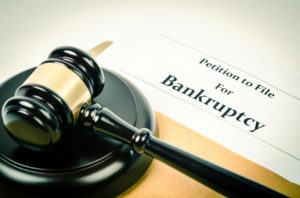Important Assets Sometimes Omitted from Bankruptcy Schedules by Debtors

Filing a bankruptcy petition creates a bankruptcy estate comprised of most assets a debtor owns at the time of filing. The good news is that there are exemptions available to protect certain assets. Exempting an asset will often result in the property being abandoned from the bankruptcy estate. A non-exempt asset can be abandoned if it is burdensome and its value is inconsequential. However, the only way to exempt an asset and/or to enjoy the benefit of an abandonment is to properly schedule the asset in your bankruptcy petition.
Another important reason to fully disclose assets is to avoid committing perjury, which could result in discharge litigation and/or criminal prosecution. Many debtors do not intend to mislead when they schedule their assets, but it is sometimes easy to forget the property that is not used everyday- the bachelor pad furnishings banned to a storage unit upon marriage; the mint-in-box collectible Star Trek figurines still stored at your parent’s house; the air compressor loaned to your neighbor two years ago.
Below is a list of property commonly forgotten that needs to be included on a bankruptcy petition:
Real Estate
- Inherited land (aka heir property)
- Land where the debtor only owns a partial interest
- Time Share
- Investment/Rental property
- Vacation property
- Land in a foreign country
Tangible Personal Property
- Possessions held in a storage unit, attic or basement
- Property at a pawn shop
- Vehicles titled in your name, but used by another (ex: car purchased for college student)
- Property you own that is held by someone else (ex: a security deposit given to landlord, property lent to someone else, property in a storage unit or someone else’s house)
- Property in a security deposit box
Intangible personal property
- Right to file a lawsuit, even if not filed
- Bank accounts (savings and checking) in your name, but open for the use of a child or spouse
- Cryptocurrency
- Intellectual property (ex: patents, copyrights, trademarks)
- Business goodwill
- Stock options
- Upcoming tax refund or percentage of pro rata tax refund earned at time of filing
- Funds you are entitled to receive but have not yet received (ex: wages, commissions, bonuses, tax refunds, accounts receivables, vacation pay, other refunds)
- Lottery tickets
- Participation in class action lawsuit
When in doubt, it is generally better to declare too much than too little. The items listed above are not exhaustive, nor does it discuss the type of property not included in your bankruptcy estate. In addition, this blog post does not address situations where a debtor becomes entitled to assets after the case is filed such as wages, inheritances, bequests, life insurance proceeds, property settlements and lottery winnings. If you have questions about the property you own, the value of your property or whether or not it needs to be included in the bankruptcy estate, please contact Sasser Law Firm to set up a free consultation.
Consequences of Hiding Assets in Bankruptcy Cases
Bankruptcy requires full honesty. Not reporting everything can be detrimental to your case, and it may lead to you having to pay back all of your debt or even criminal charges.
There are a few ways some may attempt to hide assets in a bankruptcy case, such as the following:
- Lying – While these are all a form of dishonesty, some choose to simply lie about their assets. To have a successful bankruptcy case, you must report all assets, no matter how minor they seem.
- Transferring assets – Others may attempt to transfer assets with the intent of getting them back once the bankruptcy case is complete.
- Falsifying documents – If they do report all of their assets, they may create fake liens or mortgages to lower their value.
Once the hidden assets are discovered, you would likely still have to pay all your debt. Even worse, you could still remain in bankruptcy and have to forfeit your assets anyways. If your debt has already been discharged within the last year, the court may revoke this and require that you pay back the debt. You also would not be able to discharge these debts if you file bankruptcy again.
Criminal charges are the most severe consequence of hiding your assets in a bankruptcy case. Concealing assets can be considered bankruptcy fraud. Penalties can include large fines, jail time, or both.
If you want to be sure you haven’t missed any of your assets, contact Sasser Law Firm to work with one of our bankruptcy attorneys. Call us at (919) 319-7400 or contact us online for a free consultation.
This post was originally published on March 2014 and has been updated for accuracy and comprehensiveness on February 2022.
- About the Author
- Latest Posts
For more than 20 years, the Sasser Law Firm has been helping individuals and business owners sort through financial hardships to see the light at the end of the tunnel. Our North Carolina bankruptcy attorneys are all board-certified specialists, which means we have passed a complex exam, undergone a thorough peer review, and continue to earn legal education credits in this ever-evolving area of law.














